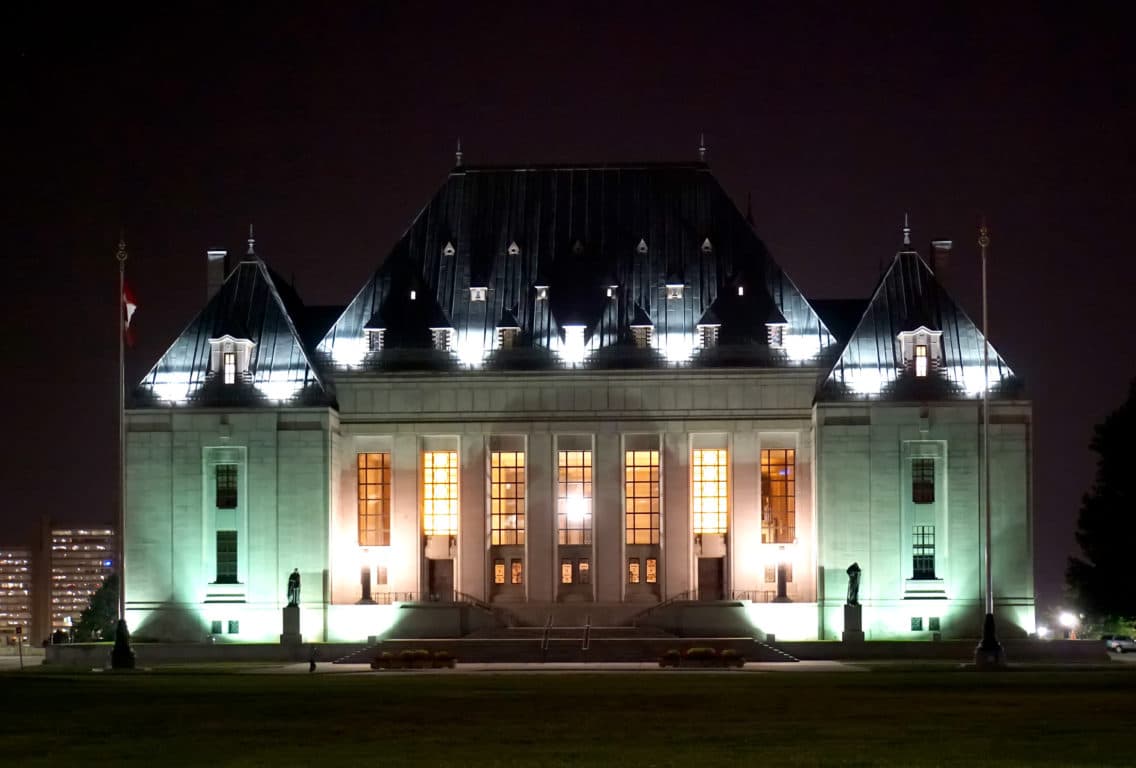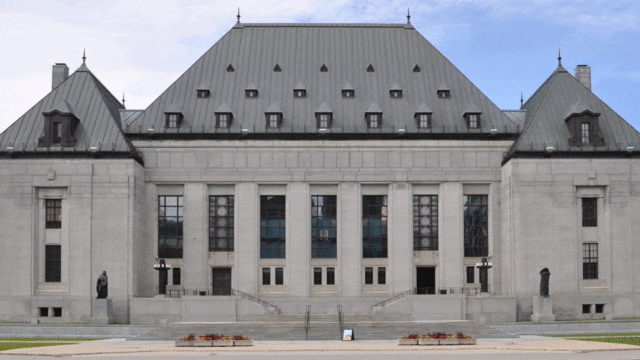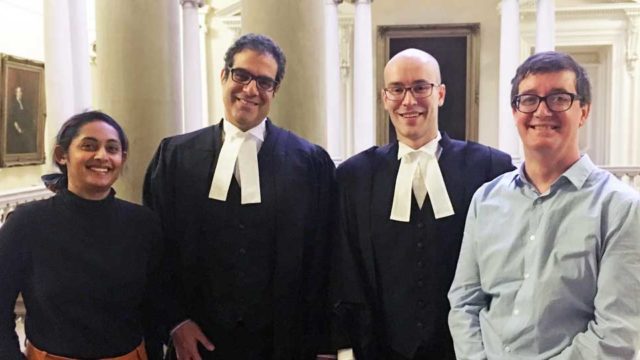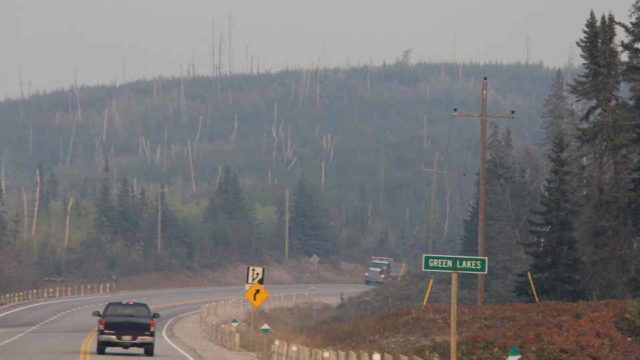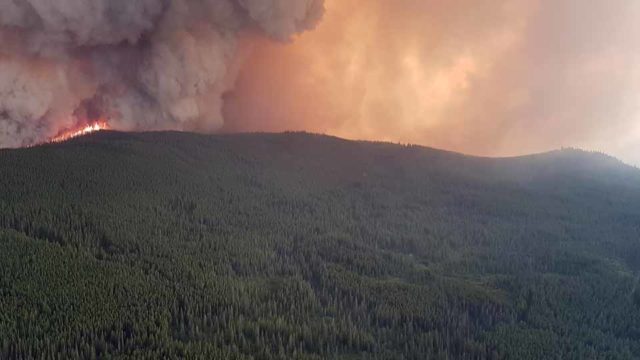Canada’s highest court to make final ruling in legal battle over carbon pricing
Next Thursday, the Supreme Court of Canada will release its decision on the constitutionality of the Greenhouse Gas Pollution Pricing Act.
This ruling has been a long time coming. Starting in Fall 2018, the Ecojustice team has faced off against premiers in Saskatchewan, Ontario, and Alberta to argue that the federal government has jurisdiction to impose a carbon price.
These efforts reached their peak in September 2020, when Ecojustice lawyers were at the Supreme Court of Canada to urge the country’s highest court to uphold the federal government’s right to put a price on carbon and set minimum national standards to fight the climate emergency.
The outcome of this monumental hearing will determine whether the federal government can exercise its authority and compel the provinces to reduce emissions in the event they fail to do their fair share to tackle the climate crisis.
Whether you’ve donated, shared our work with your friends, or sent us an encouraging message, supporters like you have demonstrated time and time again that you’ve got our back — thank you.
We remain confident the Supreme Court of Canada will uphold the federal government’s legal authority to implement national measures to combat the climate emergency.
In advance of the Court’s forthcoming ruling, we want to make ensure you’re up to speed on why this Supreme Court decision is so important and what needs to happen next in the climate emergency fight.
Premiers take aim at the climate emergency
In the last couple years, we’ve gone toe-to-toe with premiers who’ve made a point to politicize the climate emergency.
From taking on Ontario Premier Doug Ford, who campaigned on a promise to gut the province’s cap and trade program and systematically dismantle any climate plan in the works, to challenging Alberta Premier Jason Kenney’s repeated attempts to undercut laws put in place to safeguard the climate, we’ve had our work cut out for us.
Efforts by anti-environment governments to obstruct climate action hit boiling point when Ontario, Saskatchewan and Alberta all launched separate constitutional challenges of the federal government’s Greenhouse Gas Pollution Pricing Act — a federal backstop aimed at ensuring that every province and territory in Canada does its part to reduce emissions. Where provinces fail to implement a carbon price of their own, the Act sets a minimum price for the provinces.
Courts in Saskatchewan and Ontario have since upheld the constitutionality of the Greenhouse Gas Pollution Pricing Act and confirmed the federal government has the power to step in when the province fails to effectively tackle climate change.
Saskatchewan’s court agreed that, “climate change is doubtless an emergency in the sense that it presents a genuine threat to Canada.” This is a judicial first.
Meanwhile Ontario’s court went even further and found that the risk of non-participation by one or more province permits the federal government to adopt minimum national standards to reduce greenhouse gas emissions.
While both provinces have appealed to the Supreme Court of Canada, the lower court decisions point to an emerging legal consensus that the climate emergency requires a collective approach. Given that one or more provinces can too easily undermine national efforts to tackle climate change, the federal government must be permitted to enforce minimum national standards to reduce GHG emissions.
Where outcomes differed was in Alberta. The split decision out of the province was disappointing, but nonetheless remains an outlier among the positive precedents set in Ontario and Saskatchewan.
The final showdown: Why these cases before the Supreme Court of Canada are important
The stakes are always high on cases that go to the Supreme Court. That’s because as Canada’s highest court, it’s tasked with the responsibility of being the final judicial resort for legal cases and only hears cases of national importance.
This hearing was no different.
The science is unequivocal in asserting that climate threats will accelerate in the decades to come. This means young people and future generations are especially at risk and will bear the costs of the climate emergency, including widespread illness and death, more than previous generations.
With everything we know now, there is no excuse for inaction. A climate emergency is no time to play politics with our future — it’s a losing game that harms the health and well-being of Canadians, the environment, and the economy.
If the Supreme Court upholds the Greenhouse Gas Pollution Pricing Act as constitutional, it will clear the way for the federal government to introduce stronger, more effective climate legislation that supports a green recovery and gets on track for cutting Canada’s greenhouse gas emissions in half by 2030 and to net-zero by 2050. These targets align with what the science demands we must do in order to avoid the worst impacts of the climate crisis.
Looking ahead: National climate action
As we have seen from opposition to the Greenhouse Gas Pollution Pricing Act, governments who refuse (for whatever reason) to take urgent, ambitious climate action are a massive stumbling block to progress being made in other parts of the country.
The health and well-being of future generations depends on the governments of today putting aside party politics and pressure from lobbyists to do what the science and voters are calling for: Come together to combat climate change.
Thanks to your support, we’re optimistic that a positive outcome at the Supreme Court level will ensure this collaboration among different levels of government happens and benefits Canadians from coast to coast to coast. Thank you for standing with us in this critical fight.

